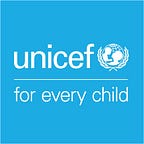Breastfeeding and work
A day with health worker Elsebeth Aklilu
Breastfeeding is one of the most cost-effective ways to boost children’s health. World Breastfeeding Week 2015 aims to empower women to combine work with breastfeeding and raising their children.
(Left) Elsebeth Aklilu weighs a child at a local health post. A government-paid health worker, Ms. Aklilu serves her own community — a village called Maderia, in Oromia Region, Ethiopia — by educating women on ways to keep themselves and their children healthy.
Reversing the multidimensional causes of malnutrition — such as a lack of proper nutrition, breastfeeding, or family planning practices — is a large component of her work.
“I want to see the changes. That’s what keeps me in this job,” she says.
Ms. Aklilu counsels Kedo Abdula, whose family planning helps her stay healthy while caring for and breastfeeding her 21-month-old daughter.
“My mother didn’t plan her children,” she says, “and I can see the differences between my childhood and my daughter’s.”
Ms. Aklilu references a family health card while counselling a woman. The cards chart the health of a family’s children and also contain educational information about best health practices for children, including breastfeeding, as well as for the entire family.
In addition to her tireless dedication to the children and women in her community, Ms. Aklilu makes time to use her knowledge to improve her own family’s health. Taking a break from work, she breastfeeds her 10-month-old son, Fikir Mekete.
Read more about UNICEF’s work on breastfeeding.
